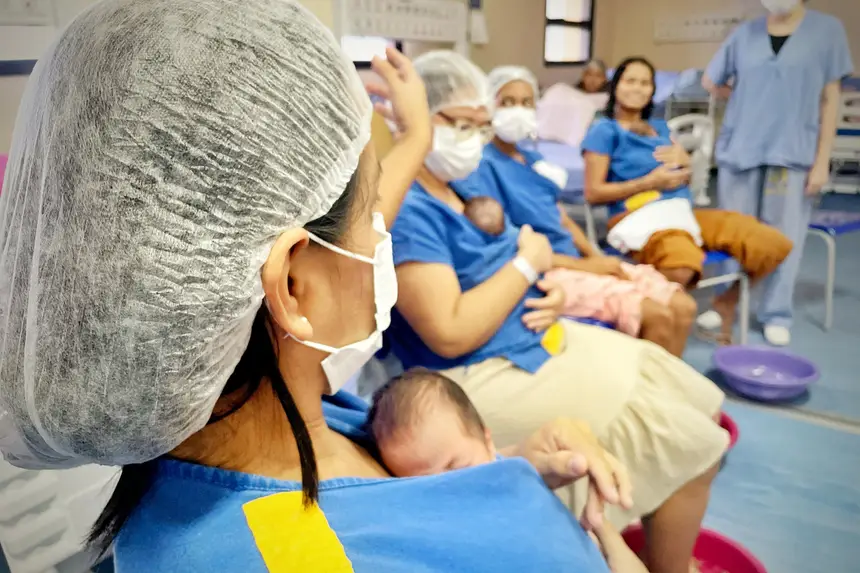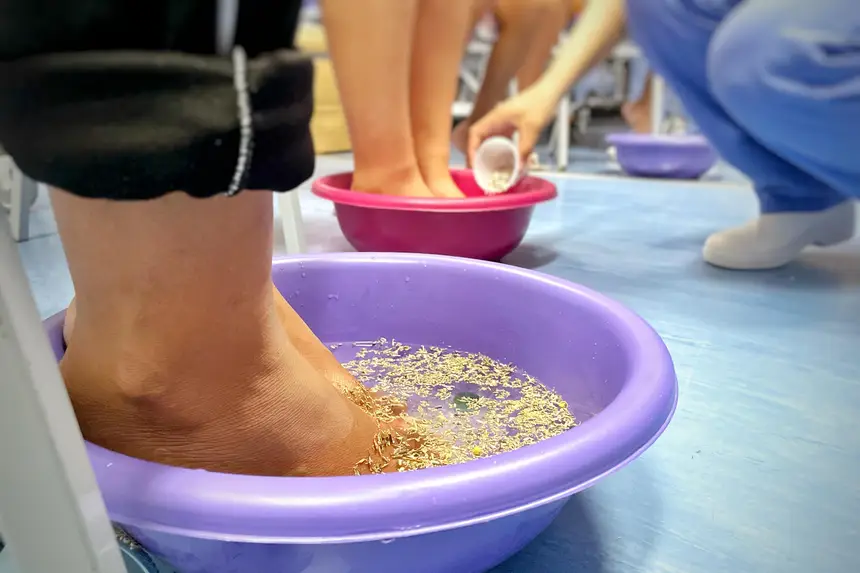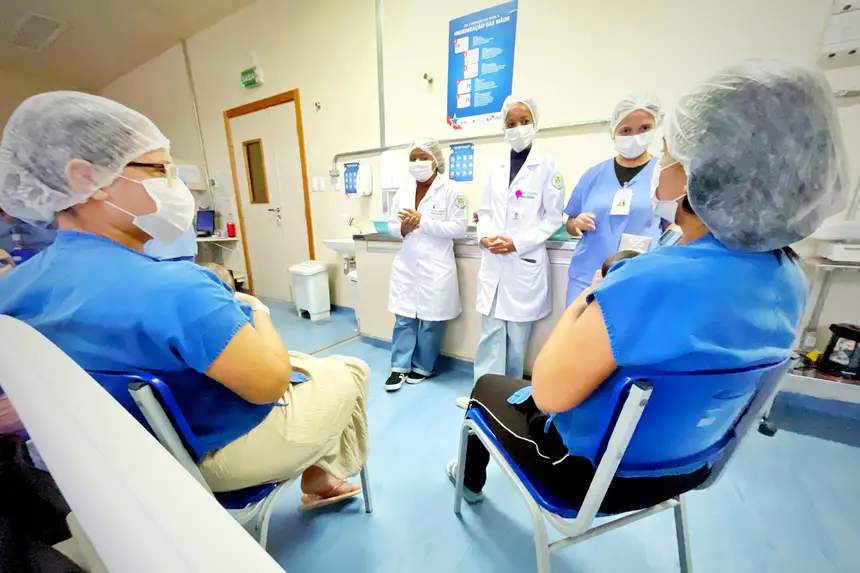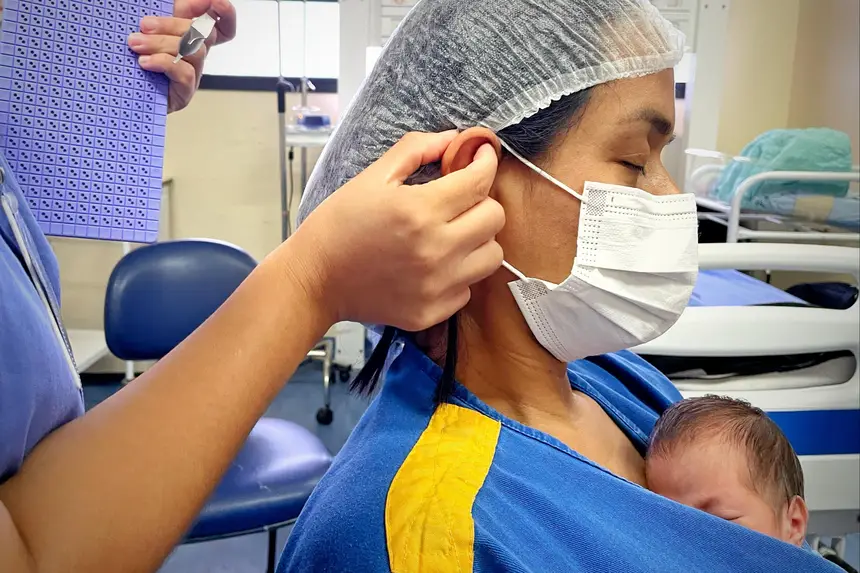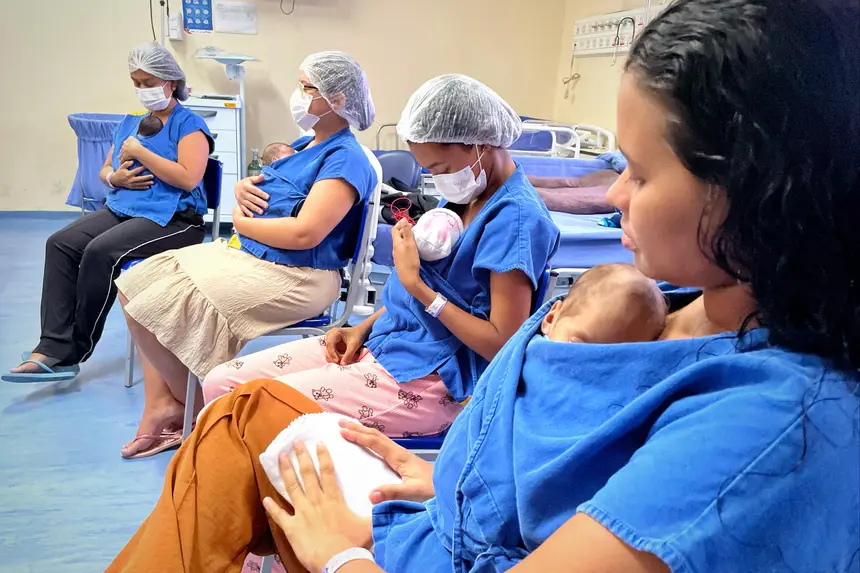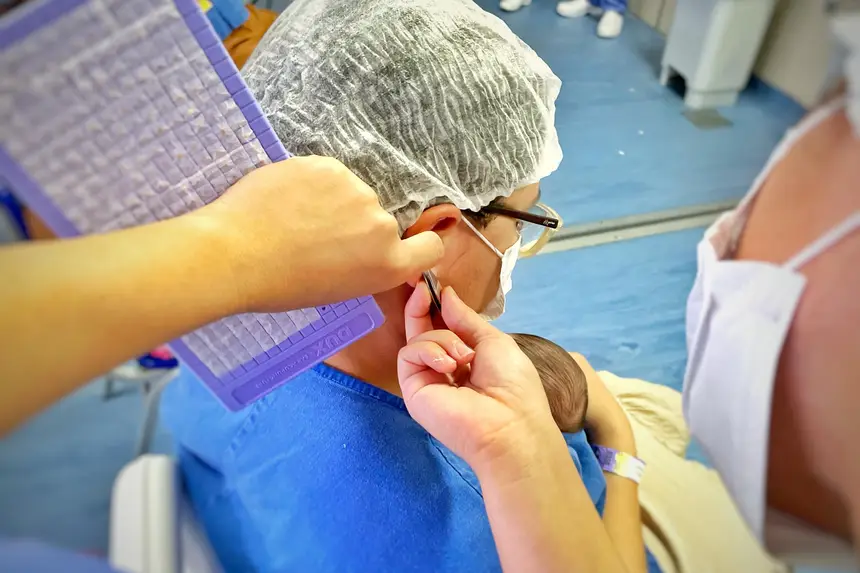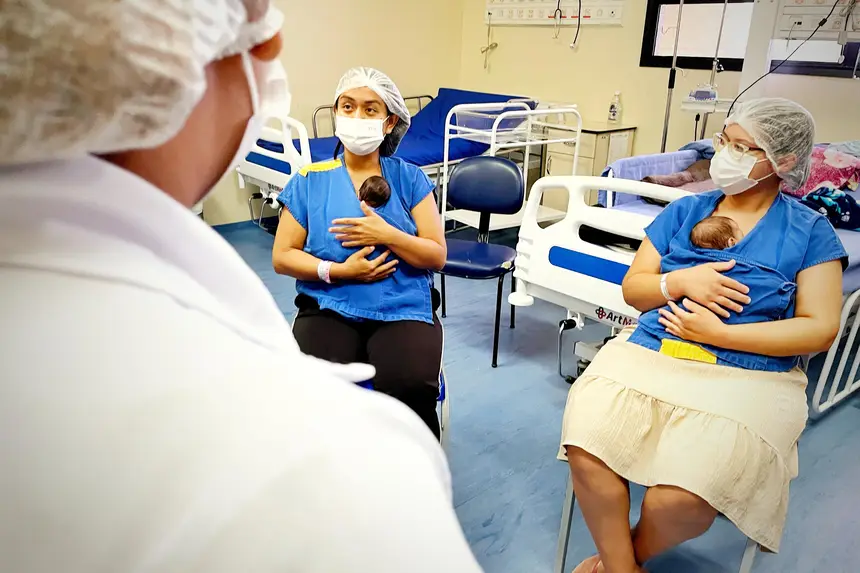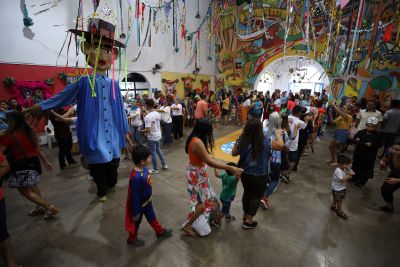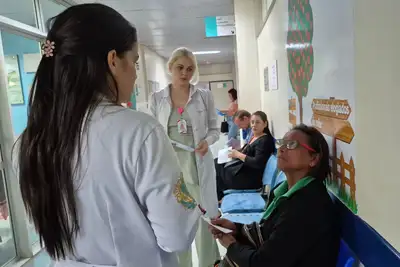Humanized action reinforces emotional support for postpartum women at Abelardo Santos Hospital
One in four Brazilian women who become mothers, approximately 25%, show signs of postpartum depression, according to Fiocruz

Focusing on welcoming and strengthening maternal mental health, the Dr. Abelardo Santos Regional Hospital (HRAS) held, this Monday (19), a moment of conversation and relaxation for mothers hospitalized in the unit. The action is part of the May Iridescent campaign, a national initiative that aims to raise awareness in society about maternal psychological well-being throughout the month of May.
Occupational therapist Danielle Ferreira emphasizes that, although the campaign takes place this month, work on the subject occurs throughout the year at HRAS. "Being a mother is not limited to a single month," she states. She draws attention to data from the Oswaldo Cruz Foundation (Fiocruz), which indicates that one in four women develop symptoms of anxiety or depression during or after pregnancy.

"Our role is not to talk about idealized motherhood, but about real motherhood, of a body that changes, of a woman who does not recognize herself, of physical and emotional discomfort, of the responsibility of generating and giving birth to a life," said Danielle. She adds that disorders such as baby blues, postpartum depression, and puerperal psychoses can arise during this period, especially without adequate support.
Considered the largest in the state public network, the Abelardo Santos Regional Hospital (HRAS), located in the Icoaraci district of Belém, is a reference in humanized obstetric care in Pará. In just the first four months of 2025, 1,660 women gave birth at HRAS, with 727 normal deliveries and 933 cesarean sections. In 2024, the hospital surpassed the mark of 5,000 births.
Action
The activities carried out with the Kangaroo Method group were divided into three moments: relaxation and self-care practice, with foot baths during skin-to-skin contact with the babies. Next, auriculotherapy was applied, using specific points on the ear for anxiety relief, improvement of sleep quality, stimulation of milk production, and emotional balance.

The third and final moment was a conversation circle, where mothers could share experiences and reflect on the main barriers faced during the postpartum period, creating a space for listening, empathy, and mutual strengthening. "Each moment was designed to welcome these mothers in a holistic way. Where they can get to know themselves and also learn about other stories and experiences," pointed out Danielle.
Emilly Caroline Siqueira, 19, detailed her experience: "People think everything is beautiful, but only those who feel it know that it is not that simple. It is a process, a moment when discoveries test us, and at certain moments, we are on the verge of losing it. That’s why it is very important to have a support network - not just from family, but also from the hospital itself," she stated.

"Participating in the action, knowing the challenges of other women, also shows us that we are not alone in this. Moreover, having this moment of relaxation, with a foot bath with herbs and balls to stimulate the sensory part, was wonderful. Now it’s about leaving here, going home, and enjoying the child with the family in the best way, knowing that the difficulties are normal," she added.
Josiane Pantoja Moraes, 34, shares the same sentiment. "Many times, the symptoms of postpartum depression are silent, and the woman herself believes it is something normal. It is important that not only the hospital team is attentive to the signs, but also the family members themselves, who, upon identifying them, can seek help from the teams so that this support can be provided," she concluded.

HRAS
The maternity unit operates 24 hours a day, with five delivery rooms, 50 inpatient beds, and a specialized team in obstetric and gynecological care. The unit adopts humanized practices using non-pharmacological methods for pain relief, such as massages, warm water baths, and aromatherapy. It also has physiotherapists in the delivery room for greater comfort and well-being for the woman.
HRAS is a reference in assistance to women and children, with services in four areas: emergency, surgery, clinical hospitalization, and Intensive Care Unit (ICU). Reception is also guaranteed in the Intermediate Care Units (UCIn). The pediatrics department has 10 ICU beds, 25 pediatric clinic beds, and a pediatric emergency room with 24-hour service.


